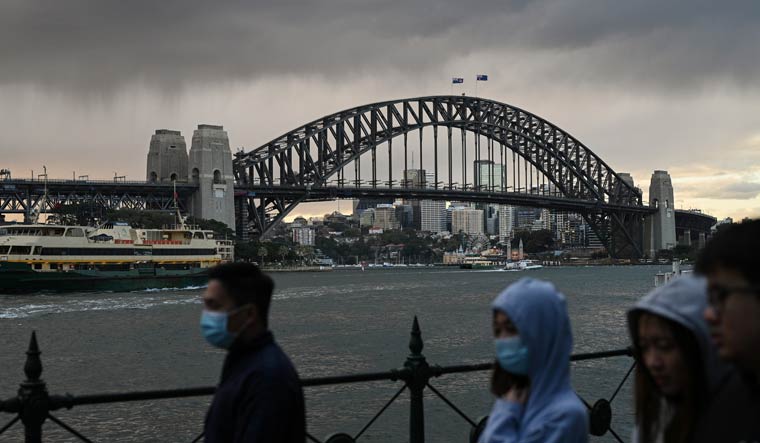Australia's economy has suffered its sharpest quarterly drop since the Great Depression because of the pandemic, with data released on Wednesday confirming the country is experiencing its first recession in 28 years. The latest national accounts showed the economy shrank 7 per cent in June, the biggest contraction since records began in 1959. Its nearest rival was a 2 per cent fall in June 1974, as economists estimate a sharper fall in the early 1930s when Australian became one of the world's hardest countries by the Great Depression.
The Australian Bureau of Statistics's head of national accounts, Michael Smedes, said the pandemic and containment efforts were to blame for the "unprecedented" drop that exceeded previous records "by a wide margin".
"The June quarter saw a significant contraction in household spending on services as households altered their behaviour and restrictions were put in place to contain the spread of the coronavirus," Smedes said. Hours worked fell almost 10 per cent while cash payments of social benefits rose more than 40 per cent, both records for the country.
The central bank and government are working in tandem to try to support the economy, with the former on Tuesday expanding a lending facility to banks to keep credit flowing and the latter extending its labor market assistance package.
Australia’s early lifting of restrictions and reopening of its economy is now being offset by an almost two-month lockdown in Melbourne, the nation’s second-largest city with about 5 million people, delaying the recovery.
An economy is considered to be in recession if it sees two consecutive quarters of negative growth. Combined with a smaller 0.3 per cent drop in the March quarter, two consecutive quarters of contraction have been fulfilled.
It is to be noted that Australia was the only major economy to avoid a recession during the 2008 global financial crisis—mainly due to demand from China for its natural resources.
Australia has had steady economic growth for decades with strong coal, iron ore and natural gas exports to a surging China. Tourism has also been a big driver of growth. However, the bushfires last year, followed by the pandemic, have significantly affected the Australian economy.


